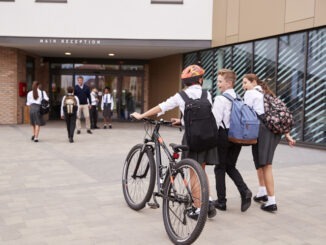
As reported by the BBC, plans to open three new schools for children with special educational needs have been approved
The Department for Education announced on Thursday that bids by councils in Worcestershire and Birmingham had been successful. Birmingham is set for two of the free schools in the south and central areas of the city – an all-through school and one for 14 to 19 year-olds and in Malvern, a new school is being designed to provide support for pupils with Autism Spectrum Disorder (ASD).
Worcestershire County Council said about 120 full-time places would be provided for students aged from five to 19, allowing them to engage with a mainstream curriculum via extra support. It is set to be built on the site of a former primary school.
In Birmingham, about 500 places would be created, although the exact locations are yet to be confirmed.
Councillor Karen McCarthy, Birmingham City Council’s cabinet member for children, young people and families, said: “There is an acute shortage of special school places across the country and Birmingham is no exception, so this is really good news.
“Having these extra places will ease the pressure on our existing special schools and allow our children and families to access the much-needed provision they are entitled to.”
Tracey Onslow, Worcestershire County Council cabinet member for education, said: “We know that more tailored facilities in Worcestershire for those with special educational needs are key to how we move things forward and improve provision here, so this is great news.”
Unlike the usual free school process, the local authorities will take the lead on identifying an appropriate sponsor to run the school, though the final decision will lie with the schools minister.
The announcement came as the government unveiled new plans to reform support for children with special educational needs and disabilities (SEND) across the country.
The Department for Education plans aim to improve what it calls a ‘postcode lottery’ system.
Plans for earlier diagnoses are part of the reforms, as well as a commitment to build 33 more special free schools.
It follows a BBC report which found many special schools were oversubscribed and overcrowded.



Be the first to comment